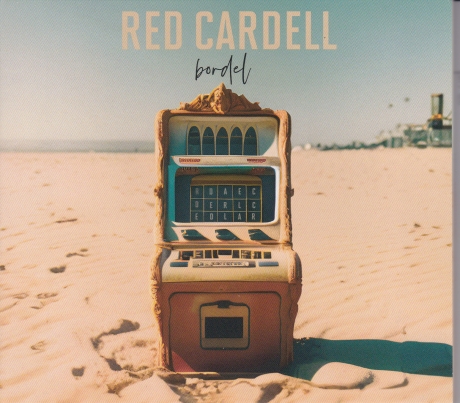
RED CARDELL
Bordel
Philippe Cousin
It's been thirty-two years since the creation of Red Cardell in 1992, a band whose origins can be traced back to the late Penfleps.
Thirty-two years and more than twenty albums under their belts since their first, Rouge, in 1993, almost an album every year. Defining themselves as a popular music group open to the world, their eclectic musical repertoire blends influences as diverse as Breton, Slavic and Berber music, flirting with folk, rock, blues and French chanson, underlining the richness and complexity of their musical approach.
Back in 2024, five years after Nerzh in collaboration with Bagad Kemper, Red Cardell sign this one with Bordel. From the expression "C'est Red Cardell, bordel!" that Jean-Pierre Riou sometimes utters on stage during their concerts. And for this comeback, they have chosen to hit hard. A colourful musical nugget, originally conceived as a work of art, the album is made up of twelve songs, each telling a different story.
This is a lively, supercharged album, as the band is so good at doing, with songs whose lyrics are sometimes loaded with meaning, sometimes more sensitive, sometimes more intimate, with lyrics in which Jean-Pierre does not hesitate to introduce an autobiographical element - Au Diable, where we can guess the young teenager already rebelling, or La Ballade de 6 à 8, a delicate song in which we can easily imagine the young adult walking the beaches of Locquirec, where he settled many years ago. J.P. Riou's emotional waltz is punctuated by lyrics based on current events.
Once again, folk and rock are given pride of place. But there's one constant throughout the album, a strong Breton influence. More than one tune has a distinctly traditional flavour, and the rhythms of andro, pilé menu or plinn, Le Crin, Je Rêve, Quand Vient le Soir and Tu m'entends can be heard throughout the album.
And to add a little icing to the cake, the group's four musicians - Jean-Pierre Riou, Pierre Sangrà, Fred Lucas and Hibu Corbel - have chosen to invite accordionist Fred Guichen on Les Courants d'Air and Plinn Bal Hasard, as well as Franck Bougier, who adds his brass to As, Quand Vient le Soir and Tombé. Not forgetting the discreet appearance of Philippine, her father's daughter, who provides backing vocals on the superb Ballade de 6 à 8.
All in all, this is an album in the same vein as its previous albums, rich and diverse, invigorating and sensitive, with emotion at the very core of its sound, just like frontman Jean-Pierre Riou.
Arfolk 1209 – media@arfolk.bzh
